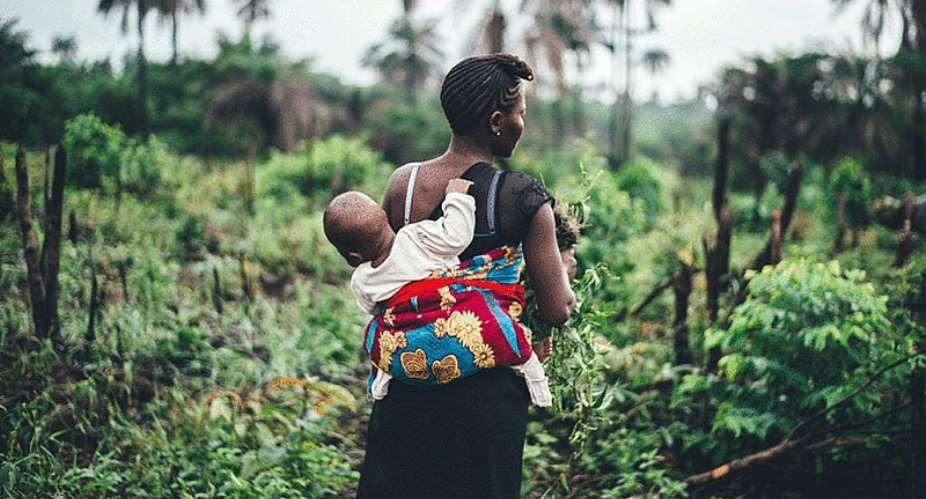Sierra Leone government policy banning pregnant girls from attending school breaches the right of girls to access education, according to a ruling handed down by the Economic Community of Economic State (ECOWAS) Court of Justice on Thursday, and said that this policy is discriminatory-- a victory for young girls.
“We hope this decision has an impact across Africa,” said Judy Gitau, Africa Regional Coordinator at Equality Now, who has worked on the case from the beginning and was present in the Abuja courtroom when the verdict was read.
“It not only sets out how such a practice is discriminatory, but it allows people to actually see how they're relegating the young girls to a cycle of poverty and indignity,” she told RFI after the verdict.
A number of human rights groups, including Child Welfare Society, Equality Now and the Institute for Human Rights and Development in Africa (IRHDA) and WAVES, a Sierra Leonean non-governmental organization, filed the case with the ECOWAS court in May 2018.
In court, the judges outlined the issues and succinctly answered each issue, said Gitau.
Discriminatory policy
The ECOWAS court said that Sierra Leone had an actual policy in place that banned school-age girls who fell pregnant. The government had argued that it was only an unfortunate statement from a minister, and not a policy. RFI reported on the issue back in 2015, where the chairman of the Conference of Principals indicated that it was a policy that was carried out in Sierra Leonean schools.
The court said that the ban was discriminatory and ordered the government to lift the ban with immediate effect.
The court also ordered the government to carry out four distinct measures in order to reduce teenage pregnancies in school. Providing sexual reproductive education, sensitising the communities on issues of discrimination, and abolishing the parallel, inadequate schools for pregnant girls.
The schools had been created by non-state actors, who only taught four subjects, three times a week, not in line with the Sierra Leone educational standards.
Vulnerable girls pay the price
The previous government had put this policy banning pregnant girls in place, but the advent of Ebola worsened the situation, according to Gitau.
A spike in teen pregnancies arose during and after the Ebola crisis.
“The majority of these girls were victims of sexual violence on account that their caregivers and guardians died and were no longer available,” said Gitau.
A decision with impact
Human rights groups hope that this ban will push other African countries who discriminate to change their stance.
“This delivers a clear message to other African governments who have similar bans, such as Tanzania and Equatorial Guinea, or may be contemplating them, that they should follow this groundbreaking ruling and take steps to allow pregnant girls access to education in line with their own human rights obligations,” said Marta Colomer, Amnesty International's West Africa deputy campaign director.





 There’s nothing you can do for us; just give us electricity to save our collapsi...
There’s nothing you can do for us; just give us electricity to save our collapsi...
 Ghanaian media failing in watchdog duties — Sulemana Braimah
Ghanaian media failing in watchdog duties — Sulemana Braimah
 On any scale, Mahama can't match Bawumia — NPP Youth Organiser
On any scale, Mahama can't match Bawumia — NPP Youth Organiser
 Never tag me as an NPP pastor; I'm 'pained' the 'Akyem Mafia' are still in charg...
Never tag me as an NPP pastor; I'm 'pained' the 'Akyem Mafia' are still in charg...
 Your refusal to dedicate a project to Atta Mills means you never loved him — Kok...
Your refusal to dedicate a project to Atta Mills means you never loved him — Kok...
 2024 elections: I'm competent, not just a dreamer; vote for me — Alan
2024 elections: I'm competent, not just a dreamer; vote for me — Alan
 2024 elections: Forget NPP, NDC; I've the Holy Spirit backing me and nothing wil...
2024 elections: Forget NPP, NDC; I've the Holy Spirit backing me and nothing wil...
 2024 elections: We've no trust in judiciary; we'll ensure ballots are well secur...
2024 elections: We've no trust in judiciary; we'll ensure ballots are well secur...
 Performance tracker: Fire MCEs, DCEs who document Mahama's projects; they're not...
Performance tracker: Fire MCEs, DCEs who document Mahama's projects; they're not...
 Train crash: Railway ministry shares footage of incident
Train crash: Railway ministry shares footage of incident
